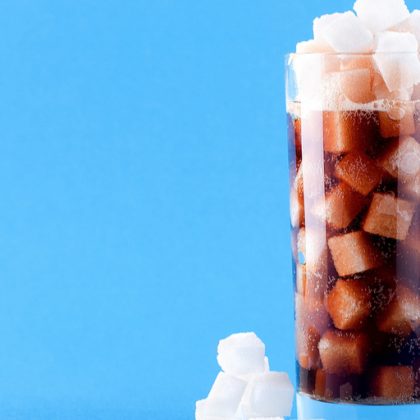Juiced up food labelling misguiding consumers on fruit and vegetable choices
Consumers are being misguided about the amount of fruit and vegetable content they are consuming in processed foods and drinks, with new research from Cancer Council NSW revealing that Australian food companies are squeezing the truth when it comes to fruit and vegetable claims on their packaging. Almost half (48 per cent) of the packaged fruit and vegetable-based products surveyed by Cancer Council NSW made fruit and vegetable claims on the packaging, despite some having as little as 13 per cent fruit content.
Household brands, including lunchbox favourites from Uncle Toby’s and Go Natural, were seen to glorify fruit and vegetable content on the packaging with claims such as ‘made with real fruit’ and stating the fruit or vegetable content proportion, or the number of serves of fruit or vegetables the product contains.
Co-author of the Public Health Nutrition report and Nutrition Program Manager at Cancer Council NSW, Clare Hughes, said that as well as exploring fruit and/or vegetable content, the study also looked at the nutrient make-up of these products.
“A key aim of the research was to compare the nutrient composition of the products carrying the claims with the nutrient composition of the primary fruit and/or vegetable noted in each product. What we found was that these products contained much less dietary fibre and much more energy, saturated fat, sugar and sodium than their fresh fruit or vegetable equivalent, making them a poor substitute for the real thing,” she said.
Currently, these foods do not have to meet Australia New Zealand Food Standards Code nutrient criteria to be able to carry these claims and so can appear, without regulation, on products which are nutritionally unhealthy. The Cancer Council NSW study found that less healthy products were actually more likely to carry fruit and vegetable claims than healthier products, with 78 per cent of less healthy foods carrying marketing claims compared to only 39 per cent of the healthier foods surveyed. Ms Hughes sees the number of nutritionally ‘unhealthy’ products that contain fruit and vegetable claims on their packaging as extremely concerning:
“Fruit and vegetables are important both in cancer prevention and helping people to maintain a healthy weight. Dietary guidelines encourage Australians to eat two serves of fruit and five serves of vegetables each day, so food companies are cashing-in on this by clearly highlighting the fruit and vegetable content in their processed products.
“However, rather than helping to boost Australians’ fruit and vegetable intake, fruit and vegetable claims on packaging are encouraging them to choose highly processed and often unhealthy foods as a way of meeting their fruit and vegetable requirements.
“We know that more than half of Australian adults are not eating enough fruit and alarmingly more than 90 per cent are not eating enough vegetables. Despite what the labels say, we shouldn’t rely on these drinks, sugary fruit snacks and salty soups to meet our daily needs. Nothing beats the real thing.”
Cancer Council NSW is urging the Australian government to strengthen the Food Standards Code which does not currently regulate fruit and vegetable claims on food labels.
“We need tighter regulation of products that may lead Australians to believe they are contributing positively to their recommended two serves of fruit and five serves of vegetables per day, where instead they are consuming less fibre, and more energy, saturated fat, sugar and sodium,” said Hughes.
Read the full article here until 8th February.






